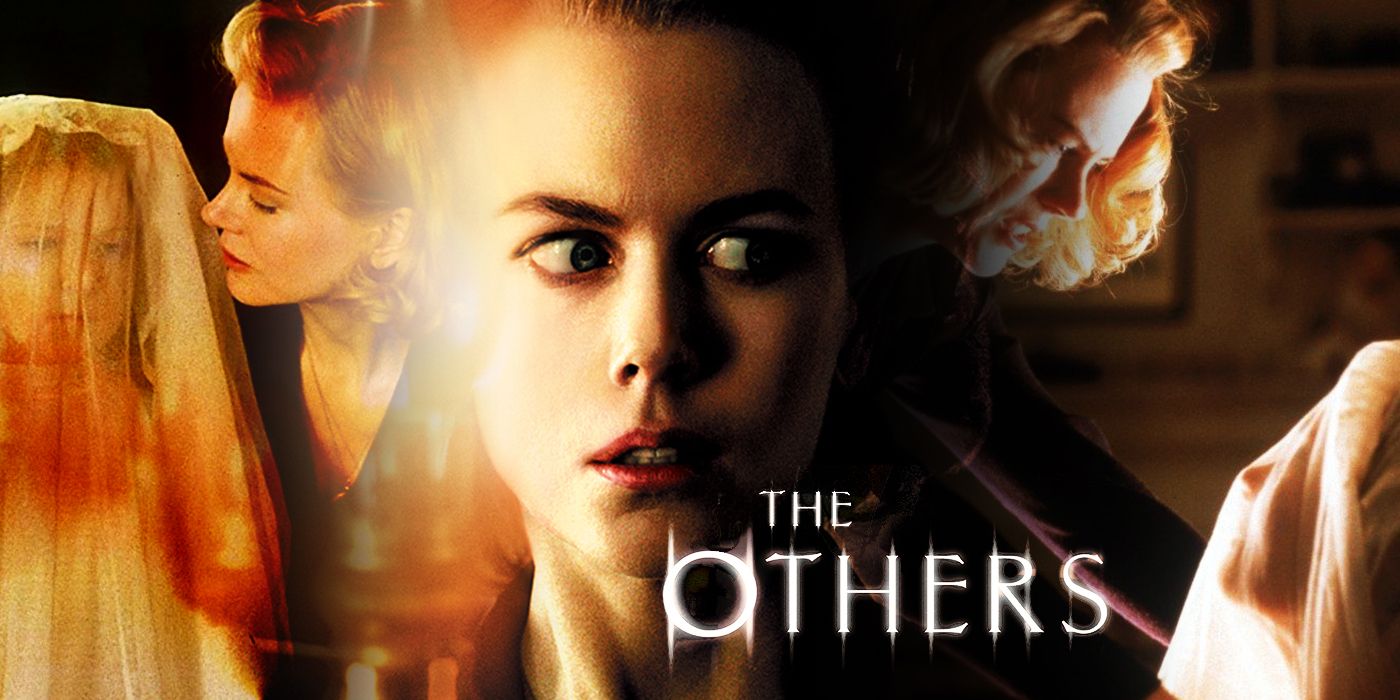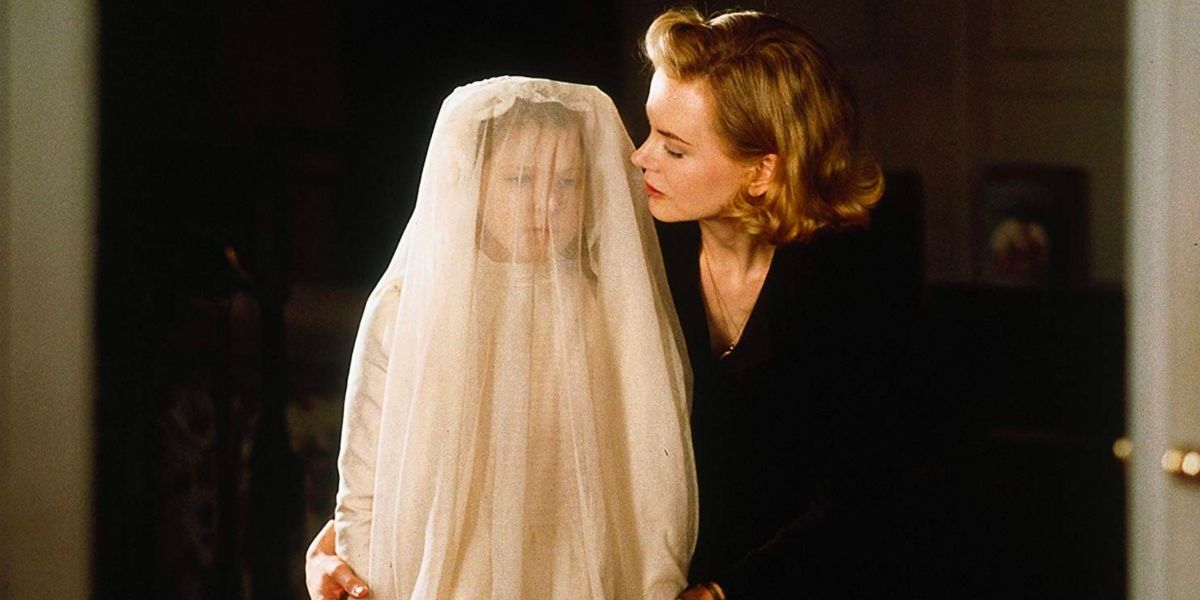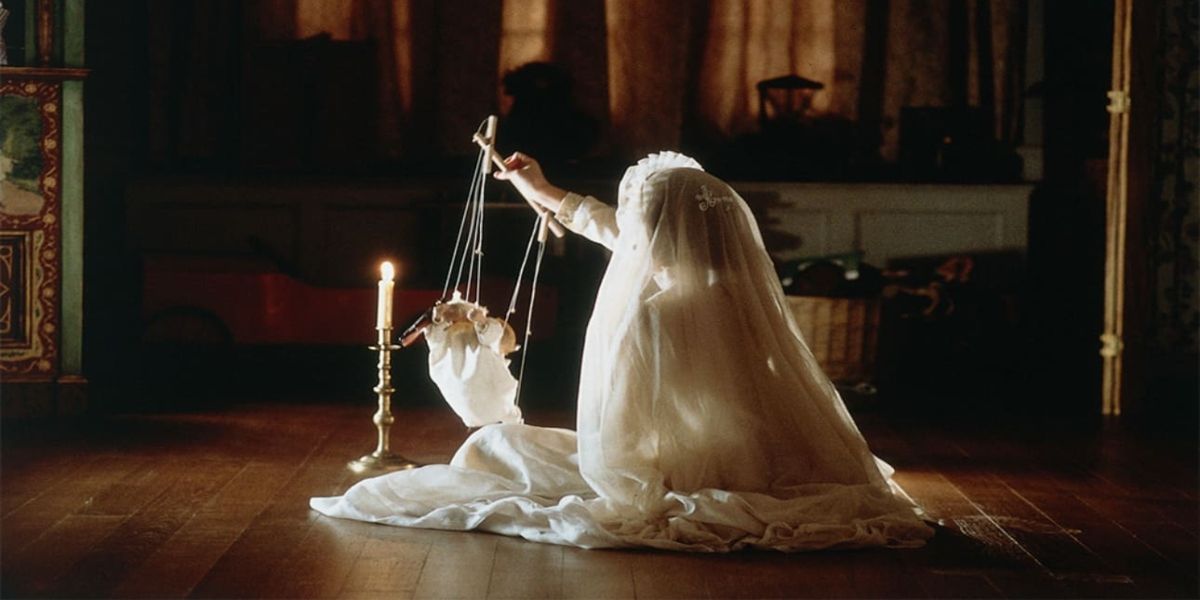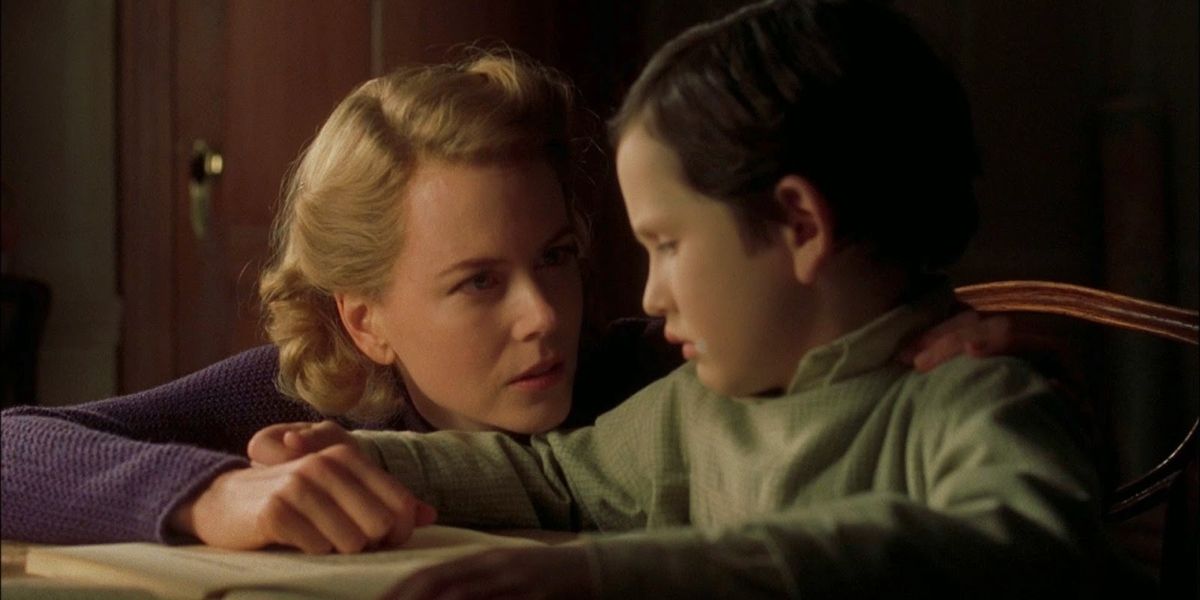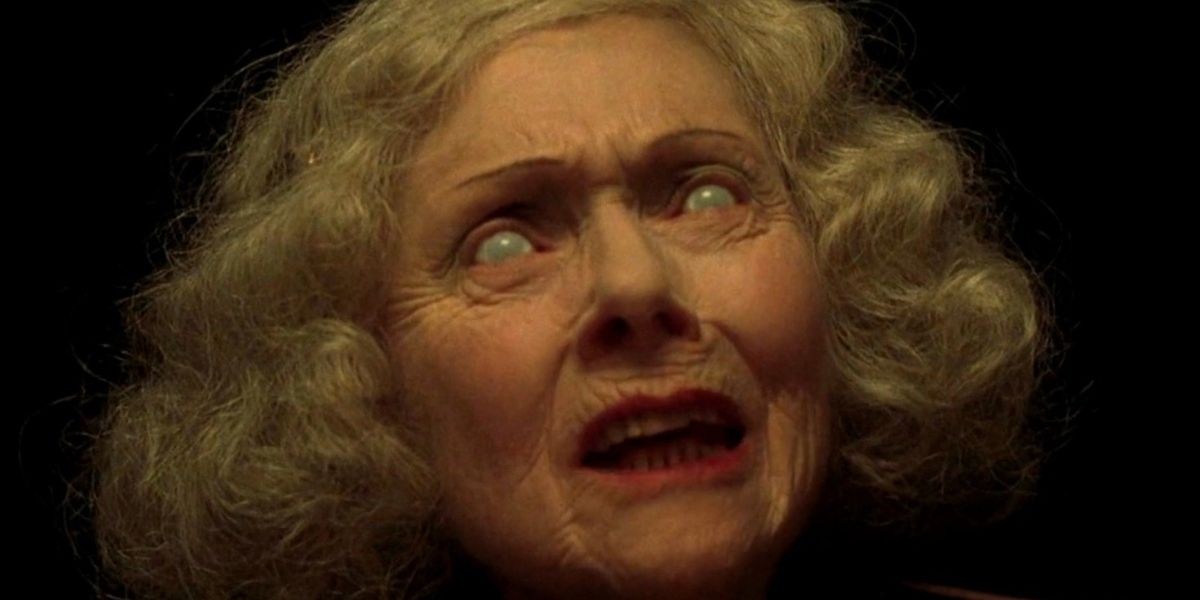This August, Alejandro Amenábar’s horror drama The Others turns twenty years old. At the time of its release, The Others was both a financial and critical success, pulling in a nearly $210 million worldwide gross on a $17 million budget with critics such as Rolling Stone’s Peter Travers calling the film a “master class." With a third-act twist just as memorable as, and similar to, M. Night Shyamalan’s “I see dead people” in The Sixth Sense, The Others has its fair share of creepy children and their antics, an eerie atmosphere set in a secluded Victorian estate, and some genuinely spine-tingling scares and imagery. With James Wan’s The Conjuring films and Netflix’s The Haunting of Hill House and follow-up Bly Manor, it’s time to reconsider how The Others fits into this current moment of horror dramas and domestic ghost stories.
The film follows Grace Stewart (Nicole Kidman) as she takes care of her son and daughter, waiting for her husband (Christopher Eccleston) to return from the Second World War. Her children, Nicholas (James Bentley) and Anne (Alakina Mann), have a rare skin disease that makes them sensitive to sunlight, so Grace shrouds the mansion in curtains and blinds, often relying only on candlelight. When her servants unexpectedly quit and leave the secluded mansion and estate, three new workers show up at their doorstep. Cooped up within the mansion’s walls, the family soon experiences strange happenings — an invisible child visitor named Victor, unexplainable footsteps running through hallways, disembodied voices echoing through rooms. What keeps Grace from losing all sense of her sanity is her fervent faith, often clutching a rosary and teaching her children about the Bible and dogma.
The Stewart family’s domestic isolation and seclusion from the rest of the world is especially relevant in the midst of the pandemic and people’s longing for any sense of normalcy. While The Others is set in post-war Jersey, an island between England and France, there seems to be no end to the war as Grace waits for her husband. Similarly, as lockdown measures have loosened and vaccinations continue to roll out, people are looking for an official post-pandemic era of normalcy, without masks and social distancing. But there are still questions with no clear answers. Is it really safe to step out of the house and into the world? Whom should we trust for the answers? In the film, Grace ultimately counts on her faith, but it is soon shaken by “the others” who’ve disturbed her peace at home. The hope for a back-to-normal is stifled by the fear of the unknown.
The conflict of faith is mirrored in the mother-daughter relationship between Grace and Anne. Grace makes her children pray each morning and night, and during the day she engages them in Christian history lessons and Bible study. But Anne, unlike her younger brother Nicholas who finds as much comfort in faith as their mother, is skeptical of her mother’s beliefs and often challenges them. When Nicholas reads the story of Justus and Pastor — two young boys who were persecuted by a Roman governor for their faith — Anne claims they were “really stupid” to have died. Instead, she would have lied in their place in order to live. Grace, of course, reprimands her daughter, citing how children who deny Christ end up in Limbo, one of the four hells. But later, Anne continues to test Grace’s authority and catches her lies. “I read the other day,” she asserts herself, “that Limbo is only for children who haven't been baptized. And I have.” Just as Grace has been shielding her children from the sunlight and world outside, she has also been shielding them from the truth. She has — literally and figuratively — kept her children in the dark. But Anne, with her natural curiosity and skepticism, serves as a pseudo-fact checker and investigator. Though Grace holds herself above her children morally and religiously, Anne is depicted as more competent and knowledgeable, and not blinded by faith.
In today’s digital age of social media and information, Anne’s independent search for truth reflects how many of us can find it difficult to sift through everchanging newsfeeds, clickbait headlines, and heated social media threads. Often, we evoke Anne’s same childlike frustration and resistance towards authority. The Others exhibits thematic connections with a post-9/11 and even post-Snowden world, but the film is all the more relevant today as people begin to gauge their safety during and after the coronavirus pandemic.
The contrast between truth and belief is at the center of The Others. Grace believes that, by living out her duty as a faithful mother and wife, she and her family will find peace in the afterlife. But the truth, as is revealed to Grace and her children at the conclusion of the film, is that they are already dead. Only the three servants — Fionnula Flanagan’s Mrs. Mills, Eric Sykes’s Mr. Turtle, and Elaine Cassidy’s Lydia — know the truth about their ghostly state and keep this secret from the Stewart family until they find it out for themselves. But while Grace is quick to dispel any belief in the unexplainable, Anne is the only one among the Stewarts who is willing to find out the truth. She keeps in contact with Victor, the disembodied boy’s voice who argues with her at night. And she’s also the one who discovers the graves of Mrs. Mills and the other servants, finding out they are ghosts.
But the darkest truth that Anne already knows is the one that Grace, as a faithful God-fearing woman, is most ashamed of and willing to forget. Throughout the film, Anne tells Nicholas that their mother “has gone mad.” Nicholas refuses to believe this. But when Grace violently grapples with Anne, thinking that her daughter has been taken over by an older woman in her child’s communion dress — perhaps the film’s most striking, horrific scene — her insanity is all but confirmed. It is only when Grace and the children finally confront “the others,” another family being helped by a medium who are all indeed alive, that the dark truth finds its way to the light. In life, Grace had gone mad, suffocated her children with pillows, and then shot herself with a shotgun. In admitting this truth and the truth of their ghostly existence, Anne and Nicholas can finally play in the sunlight. Grace, too, humbles herself, no longer clinging to her staunch beliefs. “I'm no wiser than you are,” she tells her daughter, “But I do know that I love you.”
Perhaps the lesson of The Others is in Mrs. Mills' words, “We must all learn to live together. The living and the dead.” Apart from the supernatural nature of the film, The Others is about peacefully coexisting with others who may be different or might hold differing views. The film presents Grace, an aristocratic, Christian wife and mother, as someone who is prideful, privileged, and arrogant. Not only does she assert her class over her servants, but she also shows a disregard for the elderly, like Mrs. Mills and Mr. Turtle, and even those with disabilities, such as Lydia, who is mute. Grace is not at all a saint and, quite frankly, lacks the grace to learn to live with others. It is only after admitting the truth at the end, when she humbles herself and lets go of her hubris, that she is open to sharing the mansion with the servants and other potential ghosts. This is the “new normal” for the Stewart family. There is no going back.
While The Others establishes deeply philosophical and existential questions about the world we live in and the possibility of life after death, the film ultimately asks us to reconsider our firmly held, personal beliefs for the sake of not only living with ourselves but alongside — as the title suggests — others. There might not be a back-to-normal, neither for us nor the characters in the film, but the only way forward is through coexistence, less we all find ourselves ghosts as well.

